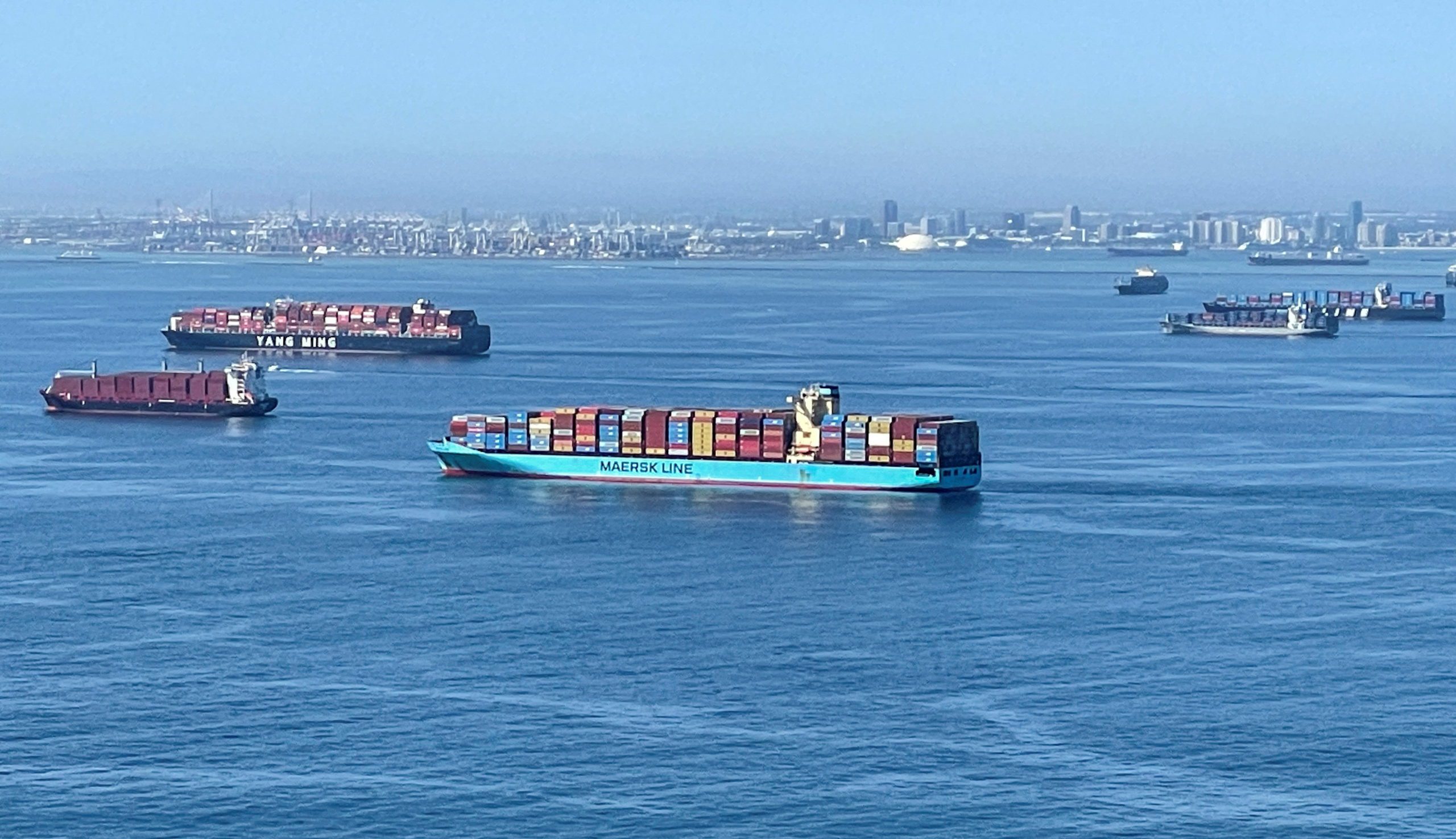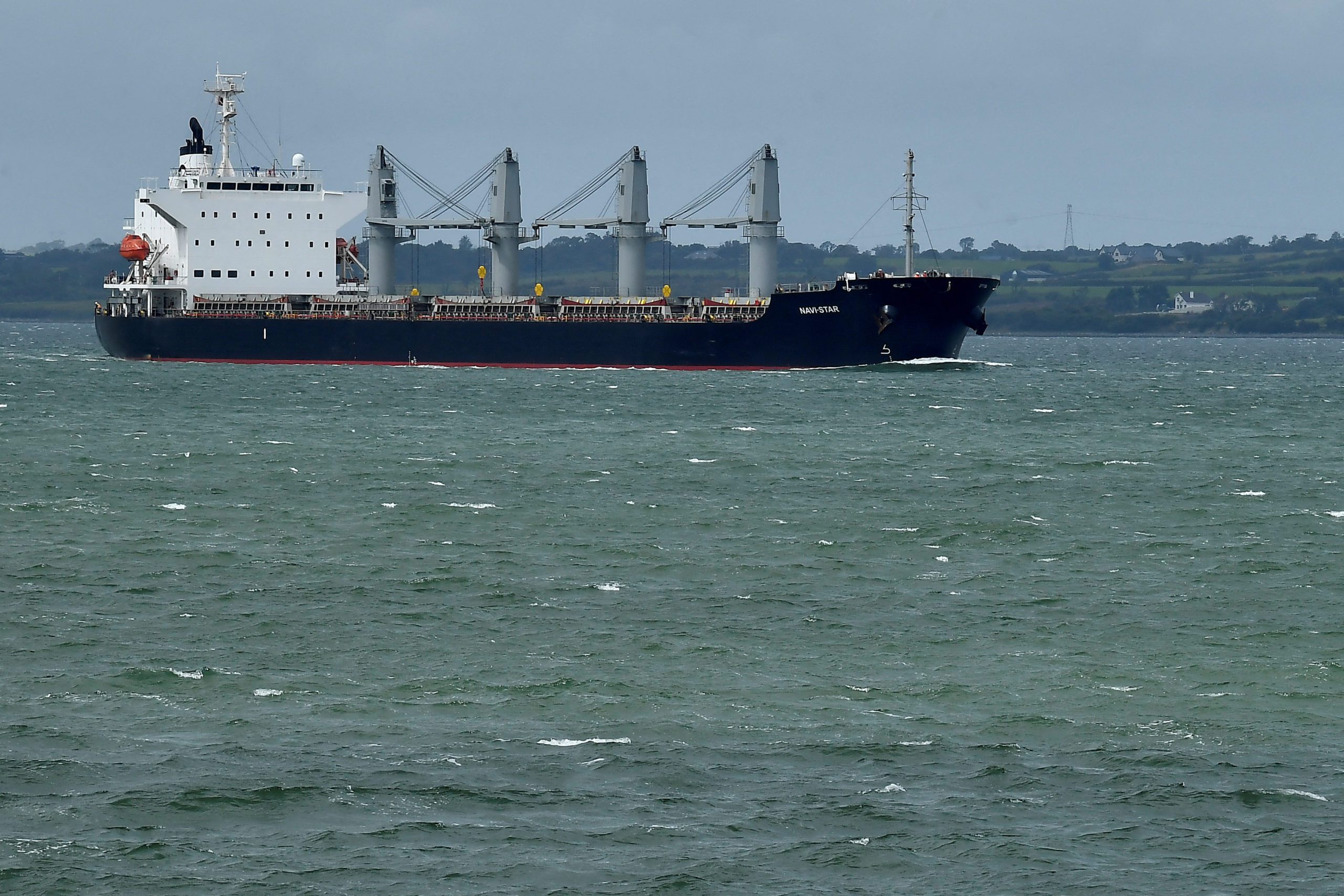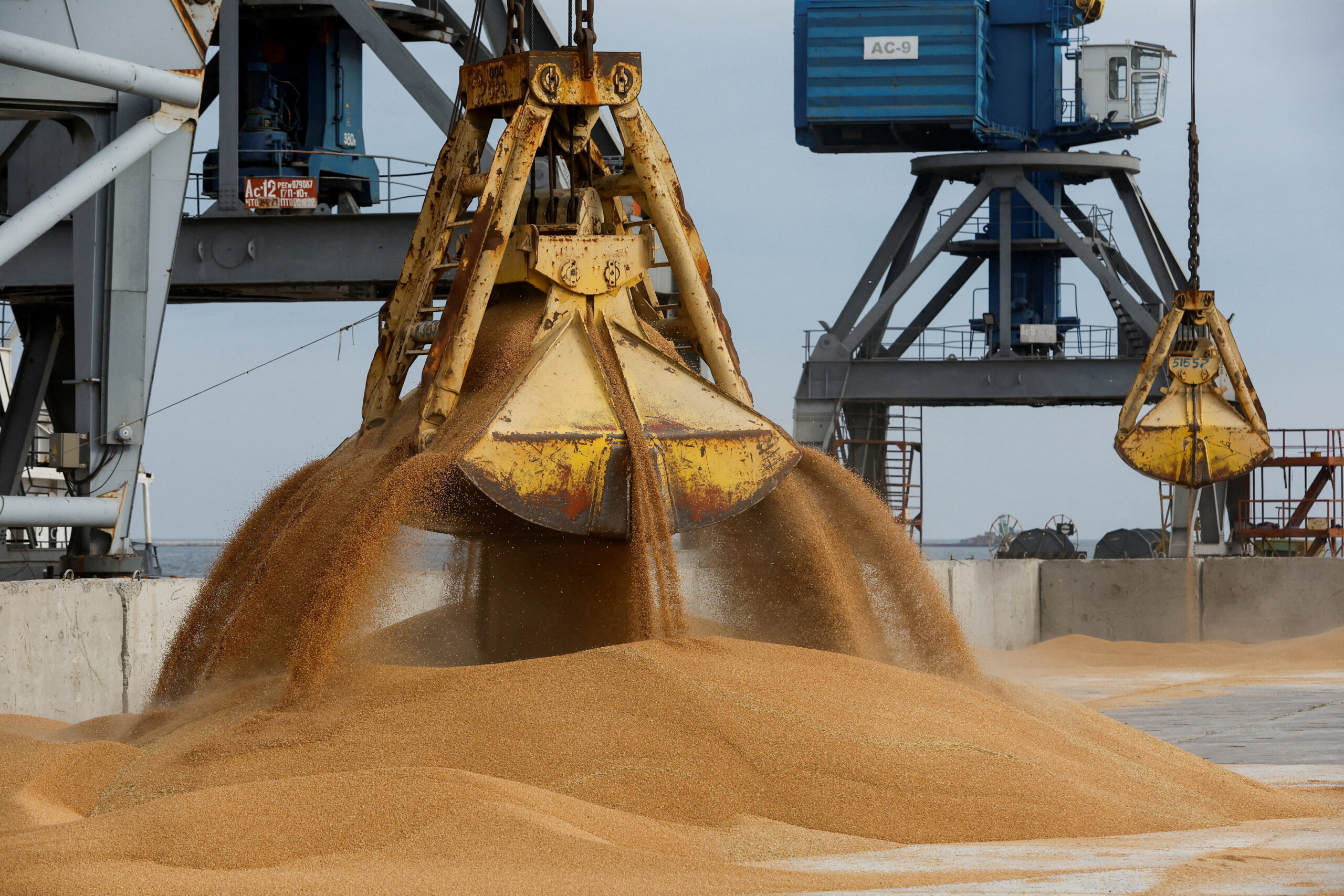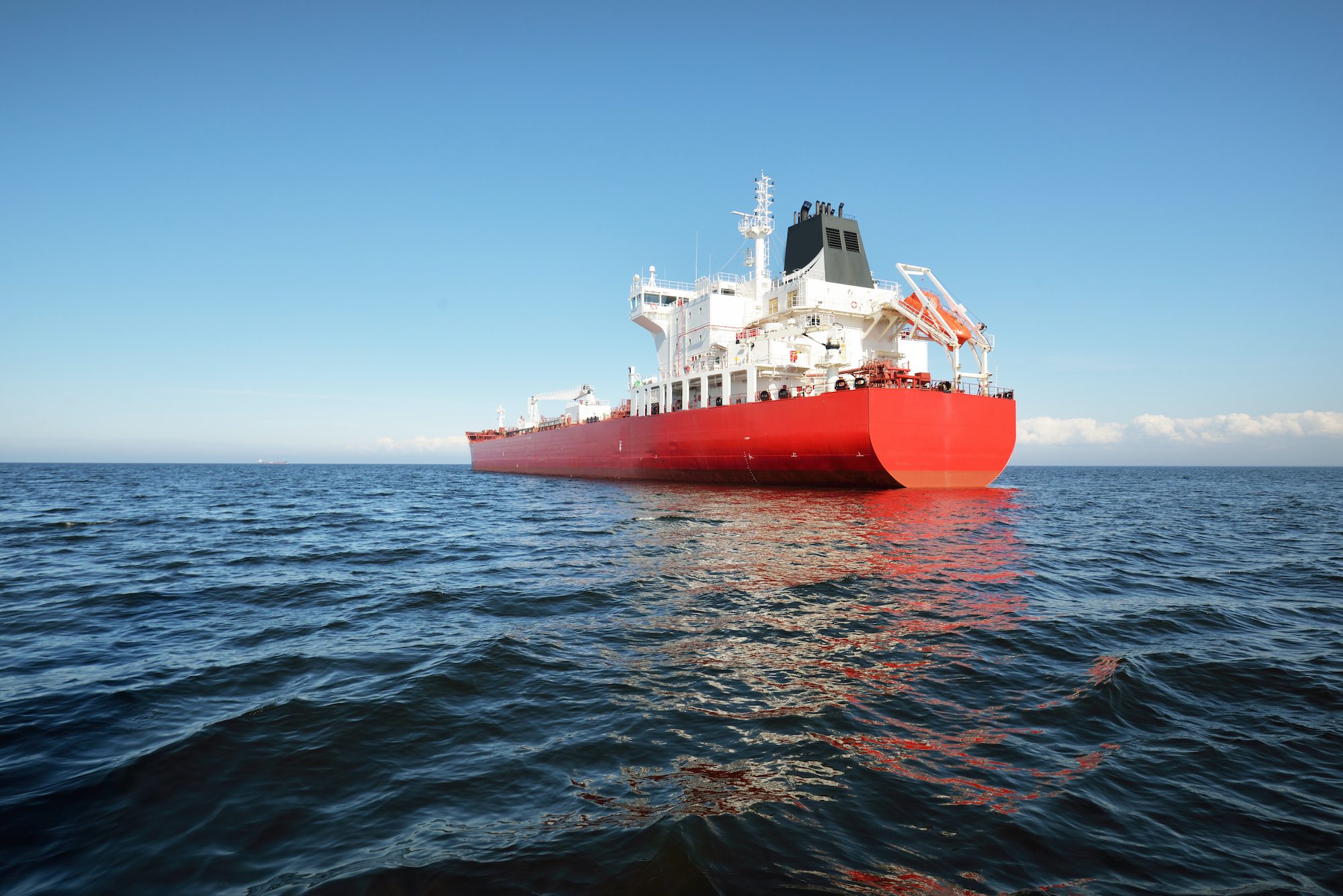By Christian Wienberg and Anna Edwards (Bloomberg) —
A major player in global trade signaled disrupted supply chains rattling economies from Vietnam to Germany may return to normal within months, easing concerns of a more protracted period of shipping chaos that has helped fuel inflation, wreaked havoc on retailers and slowed factory production.
Ship backlogs that have persisted for most of the Covid-19 pandemic will begin to let up in the second half, A.P. Moller-Maersk A/S said Wednesday. Such a shift will alleviate pressure on container capacity but will mean less revenue for the Danish shipping giant from the spot market, where freight rates on the busiest routes remain as much as 10 times higher than 2019 levels.
“We are guiding in an environment where we are coming out of a pandemic, and we don’t have much experience with that to be honest,” Chief Executive Officer Soren Skou said in a Bloomberg TV interview. “So we are saying we expect quite a strong first half of 2022, and then we expect what we call a normalization early in the second half.”
That view added a glimmer of optimism in an industry bogged down by labor shortages, port congestion and Covid-related disruptions. The outlook also hinges on a big unknown: whether household demand for goods — elevated throughout the pandemic — will be sustained when the virus fades and spending in services returns to normal. About 80% of global trade volumes move on the sea.
Maersk, which handles almost one-fifth of the world’s ocean container traffic, said it sees a 2%-4% expansion in the market this year, with a strong first half followed by an uncertain outlook from there.
“We are trying to guide as best as we possibly can, not to be optimistic or pessimistic,” Skou said. “We do not have much visibility to what will happen when people return to work, when bottlenecks open up and a lot of the capacity tied up today in Los Angeles and Long Beach gets released — how is that going to work out. We’ll have to see.”
Maersk shares, which reached a record high last month, recovered after falling as much as 5.6% in early trading. They were up 2.1% at 11:50 a.m. in Copenhagen.
The company has better insulated itself against wide swings in the spot market for ocean freight. Skou said Maersk expects to have about 70% of its ocean business booked in long-term contracts at fixed rates. That leaves 30% exposed to the spot market, where prices have dipped from record highs but remain well above pre-pandemic levels. “It will come down at some point and in our guidance we apply that it will come down early in the second half,” Skou said.
The timing of a return to normal shipping patterns is very difficult to predict, especially with China still in Covid-19 lockdowns, said Mikkel Emil Jensen, an analyst at Sydbank A/S. “It has always been a matter of time before the container market would normalize and Maersk indicates that it may come a bit sooner than some had expected,” Jensen said in a phone interview.
Profit Hit
Maersk said it expects to report a 2022 profit of about $24 billion, measured as underlying earnings before interest, tax, depreciation and amortization. The guidance compares with an average estimate of $28 billion in a survey by Bloomberg.
Container carriers have enjoyed record profits in recent quarters, as port backups and consumers demand strained capacty and drove up prices.
Ocean shipping companies have been using their windfall profits to diversify their reach across logistics chains, strengthening in areas such as air freight and trucking. Maersk also said Wednesday that it agreed to buy Pennsylvania-based Pilot Freight Services LLC for $1.68 billion, shoring up its road-transport business in North America.
While the outlook is “on the soft side,” it’s worth noting that Maersk has historically been “quite conservative in their guidance and we would assume the guidance largely reflects secured or visible revenue,” Fearnley analysts including Peder Nicolai Jarlsby said in a research note.
–With assistance from Morten Buttler and Christopher Jasper.
© 2022 Bloomberg L.P.

 Join The Club
Join The Club











